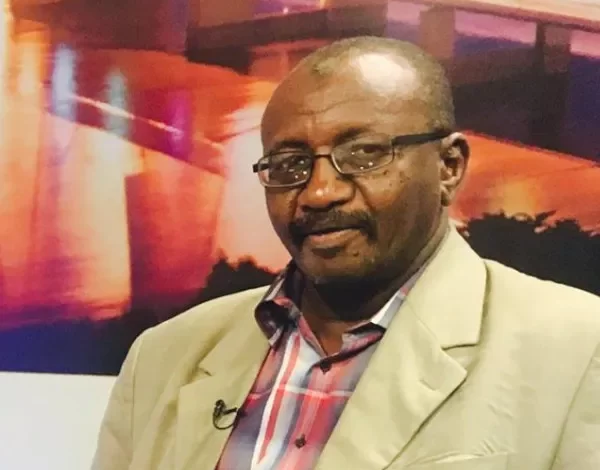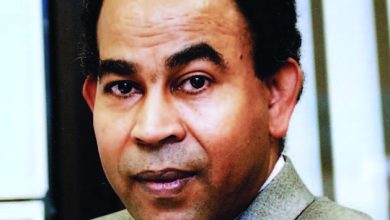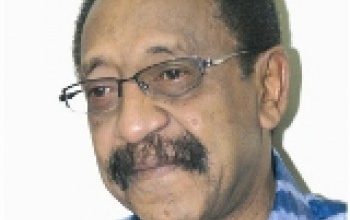Will The Nuba Mountain Be The Scene for Sudan’s New War??

By Yusuf Abdul Manan
Sudan’s Nuba Mountains area was on Sunday and Monday been the scene for violent confrontations at the heart of the mountainous region. The fighting was between two armies with the similar and one objective: bring down the central government in Khartoum. But those two guns have been split by ethnic contradictions and local interests pitching the Rapid Support Forces and the Sudan People’s Liberation Army (SPLA) led by Abdul Aziz Hilo
Al-Takma 10 away from Deleng, the second largest town in the Nuba mountain region, witnessed ferocious fighting between the SPLA and the RSF, as two parties on one side versus the Sudanese Army which declined to intervene in the fighting. The two movements confronted each other at the very door of Deleng town which is still being under the control of the army.
The steps of the RSF whose fighters are of Arab identity and the SPLA whose fighters are of African identity, are avidly moving on trying to have hold of the bottle neck of the region for whoever is able to occupy the strategic town. The RSF fighters entered in full gear and advanced weapons as well as thousands of troops mounted on 4X4 pickups and motorcycles-nowadays is being used for multiple purposes including in battles and in fighting and were used to attack and enter the military strong hold of Takma that the SPLA had controlled following two hours of fighting. The SPLM forces withdrew south towards the Karkaraya area, a pumping station for Sudan’s oil, through which it passed to the port of Bashaer in the Red Sea. The Rapid Support Forces set on fire the homes of the people, most of whom are Hausa people hailing from West Africa. Eyewitnesses say that the city’s marketplace was looted and the people’s houses were burned. The Rapid Support Forces broadcast clips of pictures showing their control of the Takma area.
The RSF troops were seen are setting fire to the village, whose inhabitants fled to the city of Dilling, numbering six hundred thousand people, according to a statements by the Commissioner for Humanitarian Aid in the state. The SPLM forces resumed attacks on the area after organizing their ranks and were able to control it once again. The residents of Dilling eastern neighborhoods said they were subjected to heavy shelling on the evening of the same day, which led to a large movement of displacement towards the north and western parts of the city. Major General Mohamed Markazu Koko, a former general in the army and former governor of South Kordufan, said the displacement of the population of Dilling, which numbered about 600 Thousand people has created a miserable humanitarian situation.
The war that hit the town divided its inhabitants on the basis of ethnic identity, so the displaced Arabs of Al-Baggara Al-Hawazma headed north to the locality of Al-Quoz, which is controlled by the Rapid Support Forces, and the Nubian groups headed to the top of the western mountains, where the SPLM has held the reins of the mountains since 1985.
And hate speech spread among the population, some families have been confused as to how to choose between displacement to areas controlled by the SPLM or the RSF, where the mother is from Nubia and the father is from the Arabs, and the war dispersed them.
Observers of consider the battles of yesterday’s allies between the Rapid Support Forces and the SPLM-N a new turning point in the current conflict in Sudan, in which the showers of bullets that rained down on the heads of the residents of the town of Al-Takma abortive of the agreement concluded by the Rapid Support and the SPLM leadership in the UAE capital Abu Dhabi last May to unify the two rifles to fight the Sudanese army, and the unannounced agreement, as military expert Major General Mohammed Al-Amin Al-Sheikh said, has drawn a demarcation of clear cut borders separating the Rapid Support and the People’s Army, which assigned itself the mission of bringing down all army garrisons while the RSF took up the task of working to control all of north and west Kordufan whose populations are predominantly of Arab origin, and Major General Al-Amin added that the (population overlap, intermingling and cohabitation) made the rapid support control the northern borders of Dilling and threatens from time to time to take the town away from the army, a move strongly opposed by SPLA movement and its followers and considered it an infringement on it.
The leadership of the SPLM and the Rapid Support Movement failed to spread and educate their fighters on what they agreed upon in the UAE, which paved the way for a dispute over control of the territory.
However, Colonel Makin al-Sadiq, one of the senior RSF Commanders in South Kordufan, said in a public address last September in the Farshaya area, north of Dilling, “We will not fight the SPLM and we have an agreement” without disclosing that agreement, its terms and the place of its signing, but he said (religion does not constitute an obstacle for us because we are already in the rapid support we do not have a religion as well as the SPLM).
The researcher and political activist on the issues of the Nuba Mountains Mohammed Jamal has pointed out from his shelter r in the Australian city of Sydney that the agreement between Helou and Hemedti represents opportunism in its best manifestations and will not last long and Helou will not be able to address Nuba agreement with the Arabs of the Janjaweed to fight the Sudanese Armed Forces, in which the Nuba constitute about 40 % of its fighting forces.
The armed forces took a neutral stance in fighting that took place between its foes, with a partial tilt towards SPLA forces, as the army and intelligence turned a blind eye to the infiltration of hundreds of SPLM fighters into the city and installing their weaponry on peak of the mountains in preparation for an attack at the town by the RSF, a town that has been living nights of horror.
The outbreak of fighting between the RSF and the SPLM on a larger scale than the Dilling represents a transition in the theater of war from Darfur and Khartoum to a more complex space for the RSF fighters who are superior to the SPLM, according to Major General Ahmed Al-Faki given their modern weapons, speed of movement and surprise attack while the mountains are fighting with their Nubian people, in addition to the experiences in the circumvention and maneuvering.
The SPLM has about 40,000 fighters deployed throughout the Nuba Mountains region, while the number of the Rapid Support Forces in Kordufan exceeds one hundred thousand fighters, but they lack experience in fighting in the difficult terrain mountains that eluded Brigadier General Muhammad Hamdan Dagalo, who fought the battle of Troji in March 2015 and within two hours lost 183 officers from his forces and more than 400 soldiers, which prompted him to leave the Nuba Mountains theater of operations the next day, so that his forces now return after eight years to fight in Dilling.
Does the battle of Tokma that took place last week represent the end of partnership between the Rapid Support Forces and the People’s Movement? just the partnership between the RSF with the leaders of Darfur, Dr. Jibril Ibrahim, leader of the Justice and Equality Movement, and Mini Arko Minawi, head of the Sudan Liberation Movement was shattered?



